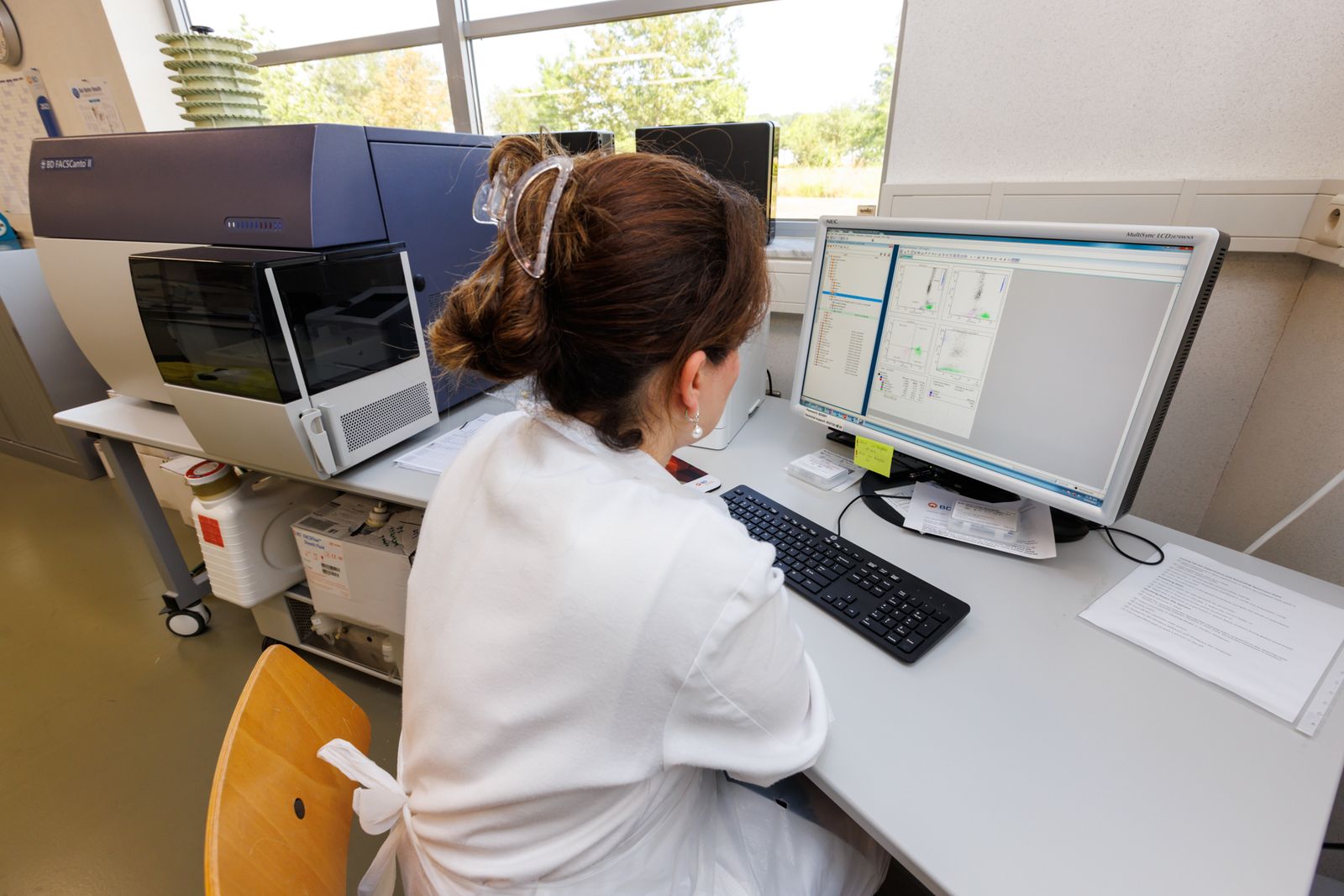R.E.D. Laboratories are offering
many different tests to assess possible intestinal dysfunctions
Alterations in the bowel flora are now believed to be contributing factors to many chronic diseases such as allergies, autoimmune and inflammatory disorders, or degenerative diseases.
A number of factors such as antibiotic use, stress, certain dietary components, can have a detrimental impact on the gut microflora. Overgrowth of pathogenic bacteria results in the production of toxic bacterial compounds (such as endotoxins) which are absorbed into the bloodstream and cause abnormal immune activation. Gut inflammation, that may result from food intolerances or allergies, leads to an increased permeability of the intestinal wall (“leaky gut”), facilitating the passage of bacterial compounds to the blood.

Blood-based assays:
Lactase deficiency assay (LACT test on general request form)
Stool-based assays:
sIgA ELISA test in stool samples (sIgA on S-station request form)
Zonulin test in stool samples (ZONU on S-station request form)
EPX/EDN ELISA tests in stool samples (EPX/EDN on S-station request form)
Inflammation markers in stool samples (C/INFL on R-request form)
Infections in stool samples (different tests on R-request form)
MSA assay (see dedicated page and MSA request form)

Lactase deficiency assay
Intolerance to lactase can lead to strong intestinal dysfunction. This relatively common condition has a genetic origin namely a polymorphism in the gene coding for lactase, an enzyme reponsible for the digestion of lactose. In affected people, the production of the enzyme declines dureing or shortly after childhood, resulting in lactose malabsorption. Undigested lactose sugars affect the development of gut microflora, leading to dysbiosis. Two copies, or alleles, of the lactase gene are present in the genome. Each allele can be either type T (normal) or type C (abnormal).
T/T: normal expression of the enzyme, patients are lactose tolerant
C/T: only one functional copy which is sufficient for lactose metabolism, therefore these patients can be considered lactose tolerant
C/C: these patients are lactase deficient, their tolerance to lactose is limited
sIgA ELISA tests in stool samples
sIgA key function is to bind to invading micro organisms and toxins and entrap them in the mucus layer or within the epithelial cells, so inhibiting microbial motility, agglutinating the organisms and neutralising their exotoxins and then assist in their harmless elimination from the body in the fecal flow. sIgA also ‘tags’ food as acceptable, so low sIgA leads to increased sensitivity to foods.
The concentration of sIgA gives us information about the intestinal immune defense:
A lack of sIgA indicates a diminished activity of the intestinal immune system
An increased level of sIgA shows intestinal inflammation.

Inflammation markers in stool samples
Calprotectin: a neutrophil cytosolic protein with antimicrobial properties, which is present at increased concentration in stool during bowel inflammation
Lactoferrin: a glycoprotein component of neutrophil secondary granules, released from fecal leukocytes; may serve as a marker of inflammation in the intestine.
Hemoglobin:discharged with the feces in gastrointestinal bleeding diseases
Transferrin: a blood-derived component; a good marker for gastrointestinal bleeding

Zonulin in stool samples
Zonulin is the “doorway” to leaky gut. Zonulin opens up the spaces between the cells of the intestinal lining. That normally occurs, in order for nutrient and other molecules to get in and out of the intestine. However, when leaky gut is present, the spaces between the cells open up too much allowing larger protein molecules to get into the bloodstream where an immunologic reaction can take place. It can also cause leakage of intestinal contents, like bacteria into the immune system creating inflammation.
As the zonulin level rises, the seal between the intestinal cells diminishes, opening up spaces between cells that allow all sorts of things to pass right through. This is called “leaky gut”. Zonulin is the only physiological modulator of intercellular tight junctions described so far that is involved in trafficking of macromolecules and, therefore, in tolerance/immune response balance.
MSA test
A new, state of the art procedure for stool microbial population analysis is now available at RED Laboratories.
Our metagenomics stool analysis provides a complete overview of bacterial populations present in a stool sample, including aerobes, anaerobes, and bacterial species which cannot be analyzed by traditional culture techniques.
This state the art procedure is based on 16s PCR amplification followed by high-throughput sequencing.For more information visit the MSA test page.
EPX/EDN ELISA tests in stool samples
The accumulation of EDN in the intestine is associated with inflammation and tissue damage. Measuring of EDN in stool can serve as an objective parameter for a current clinical or sub-clinical chronic inflammation located in the gastrointestinal area. Fecal EDN is considered the best of the cytotoxic granule proteins for assessment of gut inflammation, as it most accurately reflects clinical, endoscopic, and histologic scores of disease activity and mucosal damage. Elevated levels of fecal EDN are linked to multiple inflammatory conditions, like food allergy/sensitivity, pathogenic infections (C. difficile and H. Pylori), IBS, Eosinophilic Gastrointestinal Disorders.




